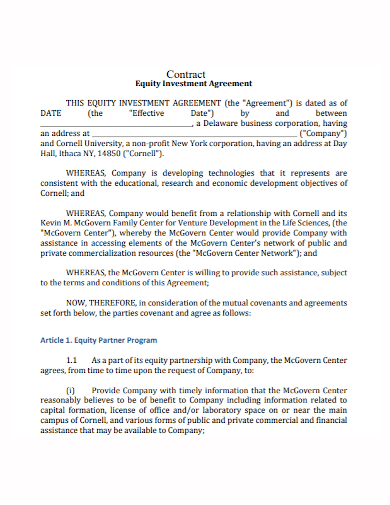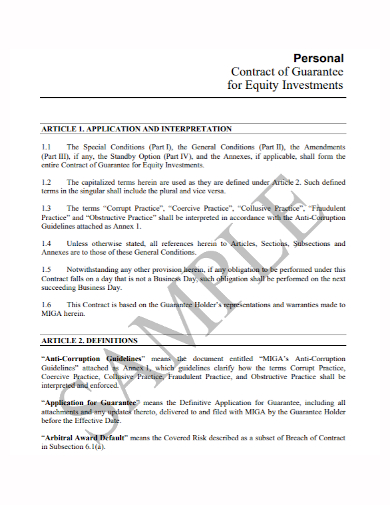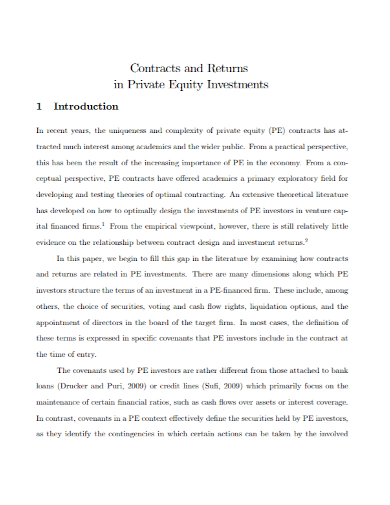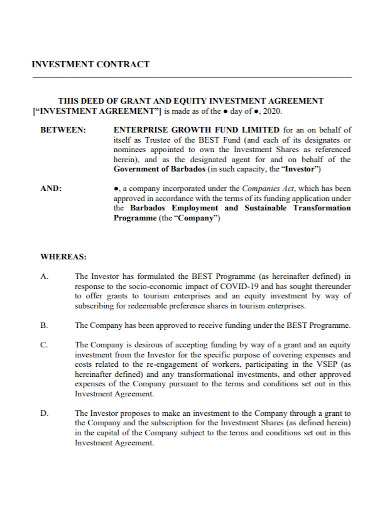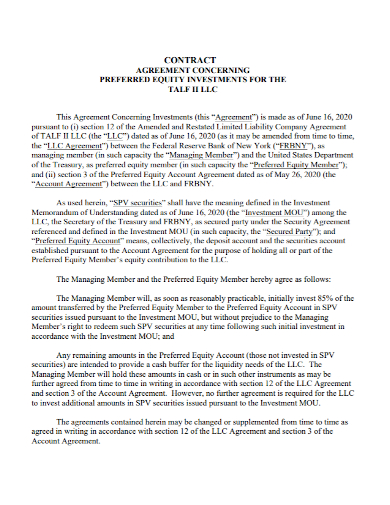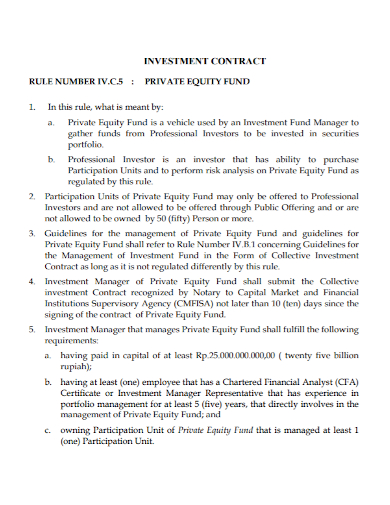Equity, also known as shareholders’ equity (or owners’ equity in the case of privately held companies), is the amount of money that would be returned to a company’s shareholders if all of the company’s assets were liquidated and all of the debt was paid off in the event of a liquidation. It is the value of a company’s sales minus any liabilities owed by the company that was not transferred with the sale in the case of an acquisition. The book value of a company can be represented by shareholder equity. Equity can be used as a form of payment-in-kind. It also represents a company’s pro-rata ownership of its shares. Equity is one of the most commonly used pieces of data by analysts and can be found on a company’s balance sheet.
10+ Equity Investment Contract Samples
A financial transaction in which a certain number of shares of a company or fund are purchased, entitling the owner to be compensated according to his ownership percentage, is known as an equity investment. In other words, it is a transaction in which an individual or a company invests money to become a shareholder in a private or public company. Other types of equity investments, such as preferred shares, stock options, and convertible bonds, differ from common shares in that they limit how the owner participates in the company’s profits or require the occurrence of a specific event before they can be converted into an equity instrument. There are also financial firms that provide equity investment securities that act as a pool of many different equity investments.
1. Equity Investment Contract Template
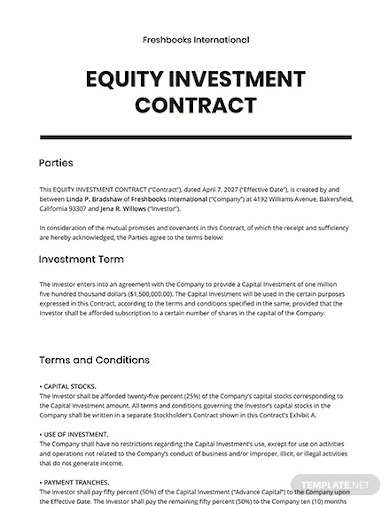
2. Company Equity Investment Contract
3. Personal Equity Investment Contract
4. Venture Capital Equity Investment Contract
5. Equity Equivalent Investment Contract
6. Private Equity Investment Contract
7. Deed of Grant Equity Investment Contract
8. Preferred Equity Investment Contract
9. Equity Fund Investment Contract
10. Equity Project Investment Contract
11. Equity Fund Science Investment Contract
Investing in Equity
Making the decision to invest money or capital is a big step in anyone’s life. As a result, it should be approached with caution and forethought.
The goal of investing money is to generate an additional source of income as well as a significant amount of wealth for your future that grows and appreciates in value over time. As a result, it’s critical to comprehend the first steps of this difficult but rewarding journey.
- Understand the personality of your investor – Repeat these questions to yourself: “What kind of investor am I?”, “How much of a risk am I prepared to take?” “, “How much money do I want to set aside?” ”. Answering these questions will assist you in determining the types of investments you want to make, as well as, more importantly, in visualizing your long-term wealth goals.
- Take advantage of the technology – There are a plethora of options for getting investment advice now that technology has reached monumental heights of innovation in the fintech sector.
- Opt for blue-chips – Blue-chip companies are some of the most valuable in the market; they are financially stable and well-established. They have a large market capitalization and are more stable than others. Investing in such companies is a safe bet for newcomers to the stock market because there is a lower risk factor associated with such companies.
How Shareholder Equity Works
The “assets-minus-liabilities” shareholder equity equation gives a clear picture of a company’s finances, easily interpreted by investors and analysts, by comparing concrete numbers indicating everything the company owns and everything it owes. The capital raised by a company is known as equity, and it is used to buy assets, invest in projects, and fund operations. A company can raise capital by issuing debt (in the form of a loan or bonds) or equity (in the form of stock) (by selling a stock). Equity investments are preferred by investors because they allow them to participate more fully in a company’s profits and growth.
The value of an investor’s stake in a company is represented by the proportion of its shares, which is why equity is important. Shareholders who own stock in a company can benefit from capital gains and dividends. Shareholders who own equity will be able to vote on corporate decisions and board of director elections. These equity ownership benefits encourage shareholders to remain invested in the business.
FAQs
Why should I consider equity?
Equity investors buy a company’s stock in the hopes of profiting from capital gains and/or receiving capital dividends. If the value of an equity investment rises, the investor will receive the difference in value if they sell their shares or if the company’s assets are liquidated and all of its obligations are met. By diversifying a portfolio’s asset allocation, equities can help it perform better.
What are the benefits of equity investment?
- The ability to increase the value of the invested amount is the primary benefit of an equity investment. Capital gains and dividends are examples of this.
- An equity fund provides investors with a diversified investment option for a small initial investment.
- To achieve the same level of diversification as an equity fund, an investor would need to invest much more – and much more manually – capital.
- If a company wishes to raise additional capital in the equity markets, investors may be able to increase their investment through rights shares.
At the end of the day, earning money entails more than just a 9-to-5 job and basic savings; it also entails the ability to build generational wealth and provide a comfortable life for yourself and your family. Investing makes it possible for this dream to come true. All you have to do now is stick to the ground rules and continue to learn.
Related Posts
Sample Excuse Letter for School
Feature Writing Samples
FREE 10+ Security Guard Contract Samples in PDF | MS Word
FREE 10+ Option to Purchase Agreement Samples in MS Word | Apple Pages | PDF
FREE 26+ Curriculum Form Samples in MS Word | PDF
FREE 20+ Cleaning Service Proposal Samples in PDF | MS Word
FREE 29+ Sample Loan Application Form Templates in MS Word | PDF
FREE 10+ Event Venue Contract Samples in PDF | MS Word | Pages | Google Docs
FREE 10+ SBAR Samples in PDF | DOC
FREE 12+ Music Band Contract Templates in PDF | MS Word
FREE 10+ HVAC Maintenance Contract Samples in PDF | MS Word
FREE 10+ Social Media Marketing Contract Samples in MS Word | PDF
FREE 10+ Wholesale Assignment Contract Samples in PDF
FREE 18+ Financial Proposal Samples in PDF | MS Word | Google Docs | Pages
FREE 10+ Feasibility Study Samples in PDF

